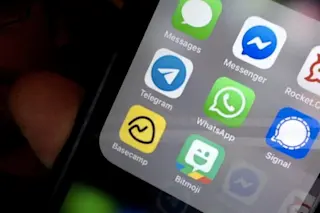Students in India surfing the web. Many in the country still lack internet access. (Credit: CRS PHOTO) Despite the name, the World Wide Web … isn’t. Some 52 percent of the world — roughly 4 billion people, mostly women — don’t have access to the open web. This has sparked something like a new space race, featuring satellites, high altitude balloons, drones, even lasers. The rush of startups and tech companies — including SpaceX, Google, Facebook — make it only a matter of time before most humans are online. The benefits are already clear. Getting online is financially advantageous for folks in low-income regions, especially Africa and Asia, where lack of connectivity is highest. Connectedness also promotes greater participation in politics and society. “If people have access to faster internet speeds, then you will also see improvements in economic growth,” says Dhanaraj Thakur, a researcher at the Alliance for Affordable ...
How Do We Get Four Billion People Online?
Internet access in developing countries remains a challenge, with high costs and limited infrastructure in need of improvement.
More on Discover
Stay Curious
SubscribeTo The Magazine
Save up to 40% off the cover price when you subscribe to Discover magazine.
Subscribe













